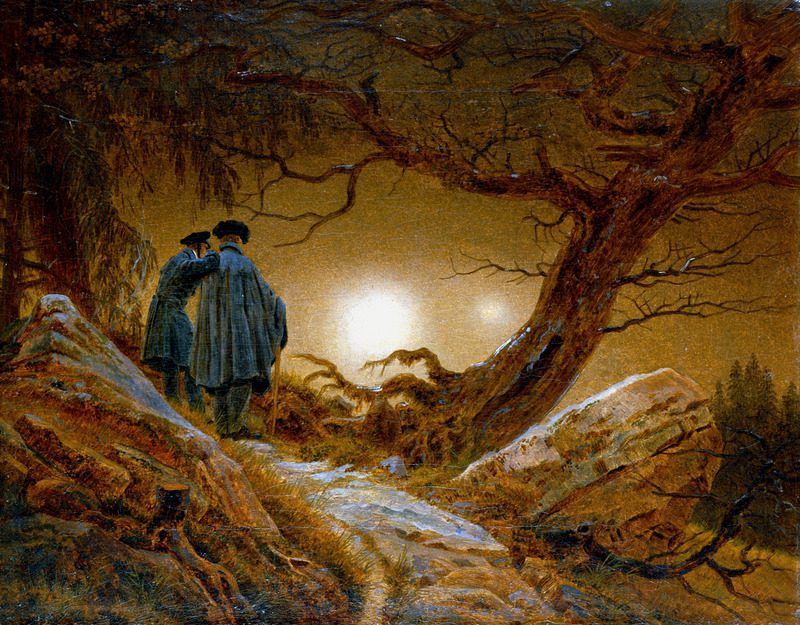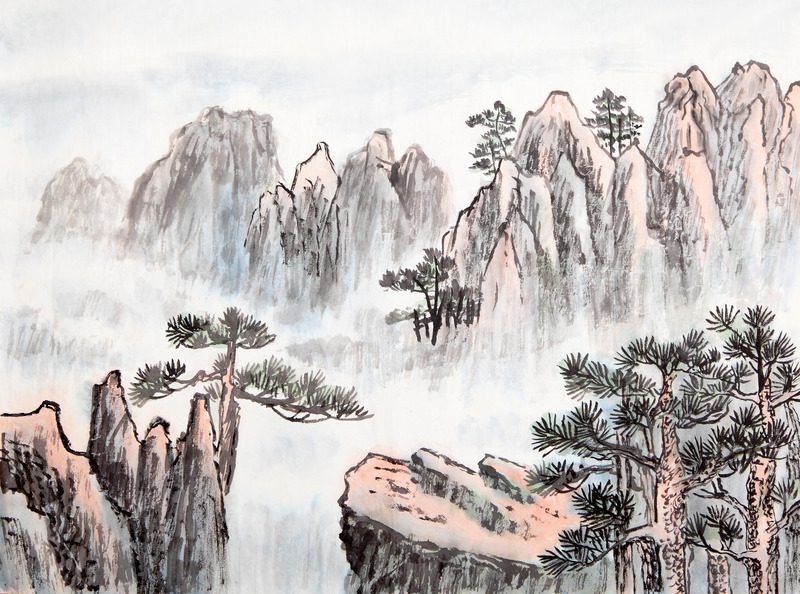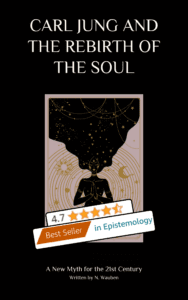Table of Contents
General Introduction
The Black Books consist of 7 volumes written by Carl Jung between 1913 and 1932. They were not available to the general public until the end of 2020, when Sonu Shamdasani published an edited edition, including an introduction to the Black Books. As Sonu Shamdasani indicated at the back of the book-set, they were the most important unpublished work written by Carl Jung. In this article I will analyze Volume 2 of the Black Books.
In this series of 7 articles, I will attempt to analyse, summarize, and discuss each volume separately. In this article I will discuss the second volume of the Black Books, the discussion of the first volume can be found here: Introduction to the Black Books: Volume 1. If you do not want to miss the discussion of the following volumes of Carl Jung’s Black Books please consider subscribing to my newsletter or YouTube channel, which can be done here: Newsletter & Youtube
Introduction to the Black Books Volume 2 and Summary of Volume 1
In the first volume of the Black Books, Sonu Shamdasani indicated why Carl Jung set about an exploration of his own unconscious. According to the editor, during the initial stages of this exploration, Carl Jung thought that he was going insane, however, eventually, Jung came to the realization that the images which were presented to him were in part fragments of a collective unconscious. As a result, instead of going insane, Carl Jung came to the realization that, through this exploration of his own unconscious, he was revealing some of the most important truths inherent to humanity.
Carl Jung came to believe that, within this self-exploration, the key to the improvement of the psyche of the individual, but also the whole of humanity could be found: “Only the change in the attitude of the individual is the beginning of the change in the psychology of the nation. The great problems of humanity will never be solved through general laws, but always only through the renewal of the attitude of the individual.” (The Psychology of the Unconscious Processes: An Overview of Modern Theory and Method of Analytical Psychology, p.4)
As a result, Jung came to realize, according to the editor, Sonu Shamdasani, that the discovery of the self was one of the most important goals of life, a discovery which would not only have important benefits for the individual, but for the entire world as well: “The realization was that the self was the goal of the process of individuation. Progression was not linear but involved a circumambulation of the self.” (The Black Books, Volume 1, p.99)
As we can see from the first volume of the Black Books, Carl Jung believed that everyone had this ability to discover these contents of the private unconscious, as well as the collective unconscious. This exploration is, however, relatively difficult and in the second volume of the Black Books we can clearly see that Carl Jung himself was struggling at the beginning of his exploration. In this article I will discuss the contents of the second volume, in which we can read that Carl Jung began his adventure full of excitement, but that he was quickly facing some complicated challenges, and that his journey did not go as planned, at least initially.
‘My soul, my soul, where are you?’
“A huge task lay before me – I saw its enormous size – and its value and meaning escaped me. I got into the dark, and I groped along my path. That path led inward and downward.” (p.149)
I believe that for Carl Jung, this ‘huge task’ was the discovery of his own soul, but also a documentation of this discovery, and the challenge of sharing his discoveries with the world.
In the beginning of the second volume of the Black Books, Carl Jung attempts to address his soul, indicating that they have long been separated from one another: “I have returned, here I am again. I have shaken the dust of all the lands from my feet, and I have come to you again. I am with you. After long years of wandering […] The one thing I have learned is that one must live this life. This life is the way, the long sought after way to the unfathomable, which we call “divine”. “(p.149) According to Carl Jung, all other ‘ways’ are false, indicating that the right way cannot be found in other people, other things, or other religions, but only within the individual.
Carl Jung himself indicated that he became separated from his soul because he did not see that the only right way could be found within himself: “I wandered for eleven years, so long that I forgot that I possessed a soul that I could call my own. I belonged to men and things. I did not belong to myself.” (p.151) Carl Jung ‘wandered’ like this until he started to pay attention to the images which he believed his soul presented to him in his dreams. He wondered how his soul managed to survive, without him paying any attention to his soul for so long, however, he concluded that his soul was, despite his inattention, always present: “But you were not lost nor was I. I went on the dusty way of the day. You went invisibly with me and guided me step by step, putting the pieces together meaningfully and letting me see the whole and ultimate in each part.” (p.153)

Understanding the Language of the Soul
As you can see, at the beginning of volume 2 of the Black Books, Carl Jung was eager to start his journey of self-discovery. However, he faced difficulties in understanding what his soul tried to communicate to him. We can see, however, that a main theme at the beginning of the Black Books consists of the idea that the soul cannot be found in things outside of the self, such as other people or other objects. Instead, it must be found within. When one fully submits oneself to the outer material world, one will be moving away from one’s soul. In order to then return to one’s soul, one must return to him or herself.
I believe that this would later form the inspiration for Carl Jung’s idea of the spirit of the times and the spirit of the depths. More information on the spirit of the times and the spirt of the depths can be found here: The TIme and Depth Spirit. For this present discussion it is important to note that the soul speaks the language of the spirit of the depths. The exploration of these depths terrified Jung initially: “What torture! I must return to myself, to my smallest things. I want to be careful and say: I had learned to see other things as large and had compared those with the things of my soul and had discovered that they were small […] You force me to see them as large, to make them large. Is that your aim? I follow, but it terrifies me.” (p.154) Because of this fear Carl Jung had a hard time trusting his soul, which he found strange because he could easily trust other people, but not his own soul: “Do I not trust every valiant man, every honorable woman, and not you, my soul?” (p.155)
As a result of this paradox, Carl Jung decided to trust his soul completely: “Your hand lies heavy on me – but I am willing – I am willing. Have I not rendered my best to love men and trust them, and should I not render this to you, my own soul, or rather the soul, by which I am owned? Yes, I see how you guide me. I recognize your wise schooling. You convince me and I follow.” (p.155)
Challenges of the Exploration of the Soul
After this decision to completely trust and follow his soul, a decision which Carl Jung explained in the second volume of the Black Books, Carl Jung begins his adventure into the depths of his unconscious. Although it is a rather personal journey, it becomes clear from the beginning that it is very relatable, and in this sense as well we can understand clearly why Carl Jung become convinced of the existence of some sort of collective unconscious.
The beginnings of his adventure do not go all too smoothly. After reading the Red Book one might get the impression that Carl Jung had a certain naturel talent for the effortless exploration of the unconscious elements, which he probably had anyway, however, throughout volume 2 of the Black Books, the reader can observe that he had to overcome several challenges.
For example, Carl Jung came to the realization that his soul is a desert, and where he thought he would find true meaning, he is met with emptiness: “My soul leads me into the desert – into the desert of my own self. I did not think that my soul is a desert and yet it seems to be the case – […] The journey leads through hot sand, slowly wading without a visible goal to hope for.” (p.163) In a previous article on the integration of the unconscious and the process of individuation I have already indicated that, if we turn our attention inwards, Jung observed that we might find that the world of our soul is a desert, it is up to us to, by directing our creative energies inwards, fertilize the land of the soul: “If your creative force now turns to the place of the soul, you will see how your soul becomes green and how its field bears wonderful fruit.” (The Red Book, p.142)

Besides rising above materialist objects in the outer world, Carl Jung elaborated on another challenge which he faced during the initial stages of his exploration. Carl Jung believed that he should also rise above his own thoughts: “I was my thoughts, after I was no longer events and other men. But I was not my self, confronted with my thoughts I was still in my thoughts where I should even rise up above my thoughts to my own self, the place of my soul. And this my self is a desert, unwatered and untended.” (p.164) Some of these thoughts which Jung believed he should rise above are the intentions that he set for himself before his journey.
As I indicated in a previous article as well, Carl Jung believed that we should be careful to not limit ourselves too much by setting intentions, a thought which he explored throughout volume 2 of the Black Books: “You are hard, my soul, but you are right. How little adapt we are at living! We should grow like a tree that likewise does not know its law. […] We tie ourselves up with intentions, not mindful of the fact that intention is the limitation, yes the exclusion of life.” (p.166) According to Jung, we cannot in advance now, through our intentions, from where true inspiration will come: “We believe that we can illuminate the darkness with an intention, and in that way aim pas the light. How can we presume to want to know in advance from where the light will come to us?” (p.167)
Carl Jung believed that the desert of his own soul which he had to cross, and the fears which accompanied him, were a necessary part of the journey: “But I am willing. Because the divine light shines bright for us in the greatest darkness. How shall I ever walk under your sun if I do not drink the nightly bitter draught of slumber to the lees? Help me so that I do not choke on my own knowledge.” (p.170)
However, despite his own encouragements, Carl Jung continued to struggle with his journey initially, which is an important theme throughout the second volume. For example, Carl Jung noted that many of the situations which he encountered, including the characters, were a lot less meaningful than he had hoped. Carl Jung even compared the stories which he experienced to novels which he hated since he was young: “Have I held the men of my time and their taste in such contempt that I must live in Hell and write out the novels that I already loathed at the age of 15?” (p.206)
However, close to the end of the second volume, in a ‘dialogue’ with his soul, it is indicated that the stories and the novels which Jung loathed, including age old fairy tales, might be closer to the truth than expected: “Be reasonable, dear friend, and do not stumble now over the fabulous, since the fairy tale is the ancestress of the novel, and has even more universal validity than the most avidly read novel of your time. And you know that what has been on everyone’s lips for millennia, though repeated endlessly, still comes nearest the ultimate human truth. So do not let the fabulous come between us.” (p.208)
Conclusions
Throughout the second volume of the Black Book Carl Jung illustrated the challenges which he had to face during the initial stages of the exploration of his own soul. Although he continually reassured himself that he must trust his soul and the places to which his soul is taking him, he continued to remain doubtful because he is faced with emptiness and a lack of meaning. The stories which his soul presents to him remain superficial and are not the ideas which he expected his soul would be presenting to him. However, as Jung indicated as well, his expectations and intentions might be what limit him.
In my opinion, throughout volume 2 of the Black Books, we can see Carl Jung make a clear move away from knowledge and reason, replaced by a direction towards the mystic i.e., the spirit of the depths. This transition was not easy to make for Carl Jung, and we can clearly see him struggle with the realization that such a transition is what is required of him: “But our knowledge! Does our knowledge also not hold good for you? What is it going to be, if not knowledge? Where is security? Where is ground? Where is firm land? Where is light?” (p.172) In volume 3 we will see whether Carl Jung is able to find a new sort of security, ground, land, and light.

